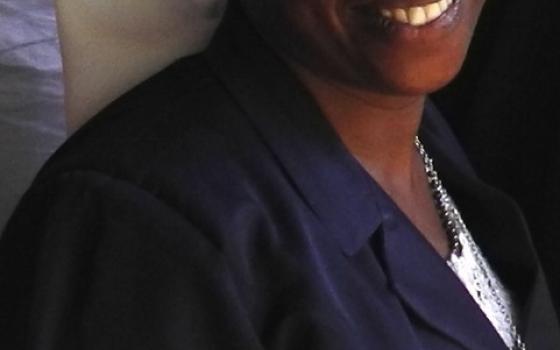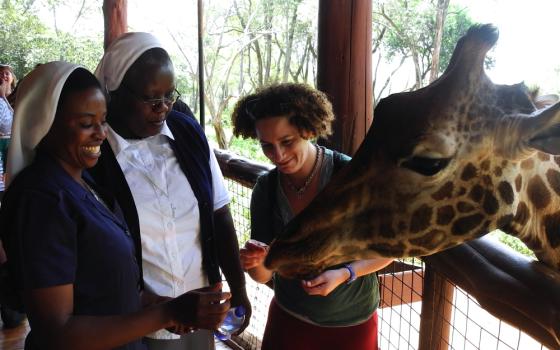Global Sisters Report met Sr. Marie-Claire Ihorere of Rwanda when she was in “limbo” in Nairobi, waiting for a visa to Brazil. The Missionary Sisters of Our Lady of the Angels, whose name means “Don’t Cry” in her native language of Kinyarwanda, was waiting for the final bureaucratic steps before she could leave for her mission in a rural community deep in the Amazon jungle.
GSR talked to Ihorere, a teacher with a degree in education management, about her feelings just before setting out on a mission far from home.
When did you first want to become a sister?
When I was 8 years old, in school the teacher went around and asked everyone what they wanted to be when they grew up. Some said ‘doctor,’ some said ‘teacher,’ but I said very clearly, ‘I want to be a sister!’ I don’t know how I knew about sisters, because in our region there were no sisters, and I had never met one. But I just had this feeling inside me that I wanted to be where I can pray, to give myself to the work of Jesus, and that I wanted to help the poor.
What did your family think of your decision?
My brother was already a priest, and my dad said, ‘Let him continue on his path, but you can get married.’ But I insisted; I said, ‘Dad, I really want to become a sister.’ When he saw I had already made up my mind, he told me to go, but that I’d probably be back after a week. That was four years ago. I have two years to go before my final vows.
Are you nervous before leaving for Brazil?
Sometimes. It’s my first time in the Americas, so I wonder what it will be like. I also worry about the crime rate. But I know that when I live in a community with my sisters, I’ll feel like I’m home.
How will you deal with the challenge of learning a new language?
I don’t think I will have problem. By now, I know that I learn languages easily. When I entered the congregation, I didn’t have very good French, but now I do. I learned English and Swahili for three months each and I can speak both now. I can speak English, Swahili, French and my local language of Kinyarwanda, and soon, Portuguese.
Right now you wear a veil, but your community in Brazil does not wear a habit. What will you do when you arrive?
I am a missionary, which means that I adopt the way of the community. I don’t have any problems taking off my veil. Even before I entered my congregation, I knew it’s my choice to wear a veil or not. In my community in Rwanda, I am the only one who wears a veil. I decided to wear the veil because I liked when people identify me with the sisters, and I like when I see sisters with the veil. But wearing a veil or not, it’s just a dress. In my experience with sisters, even if you don’t wear a veil people still call you ‘sister’ when they meet you. They can tell you’re a sister because of how you act. I feel ready to remove my veil.
Do you have advice to other sisters who are about to leave for a mission to another country?
When you go on a mission, you need to open your heart. You need to open the heart to live with the people where you work. You really have to try to become part of their community, to show them love and joy and simplicity. Those are the three things I ask from God as I begin my journey: love, joy and simplicity.
[Melanie Lidman is Middle East and Africa correspondent for Global Sisters Report based in Israel. Follow her on Twitter @MelanieLidman.]


